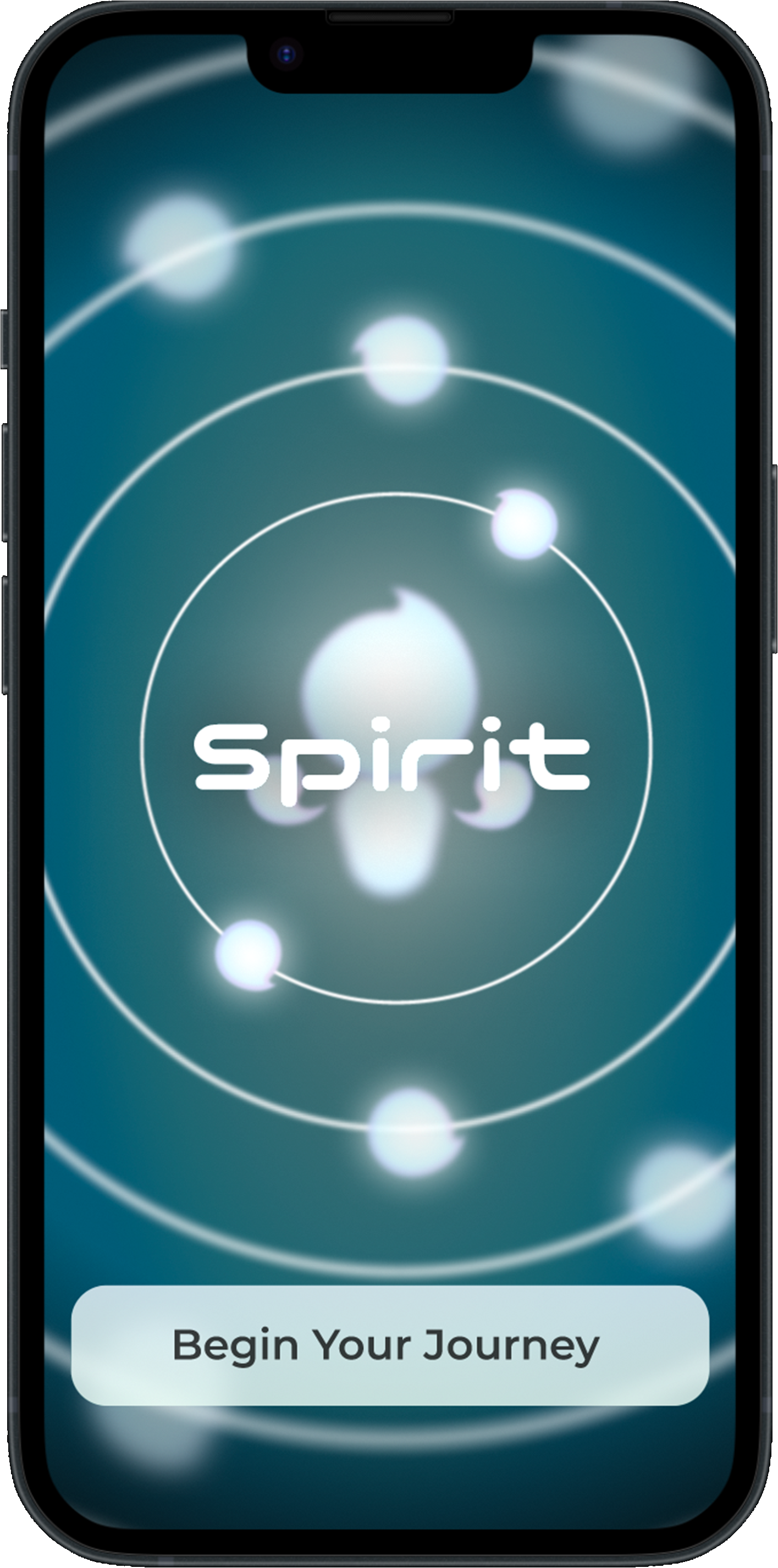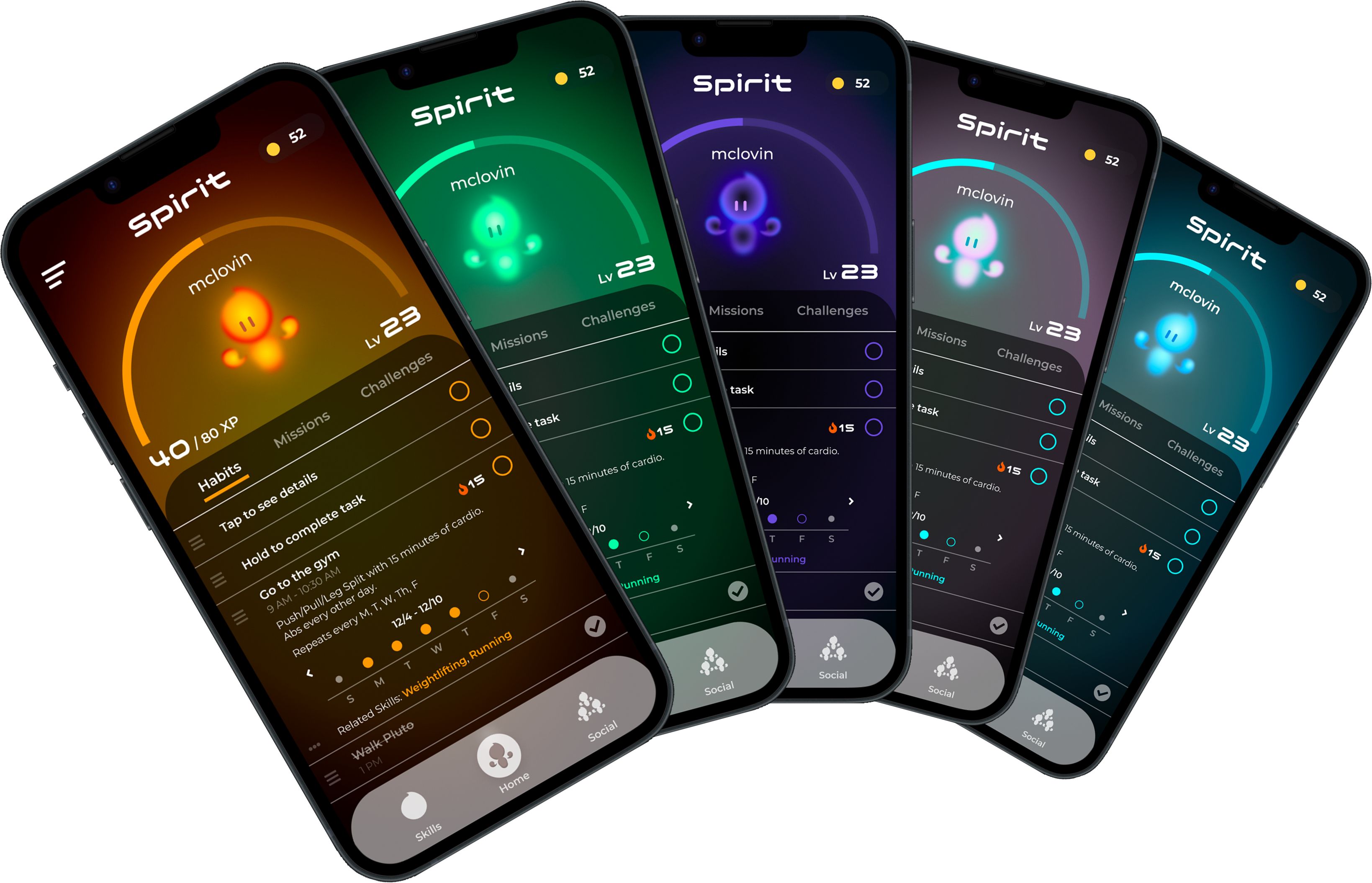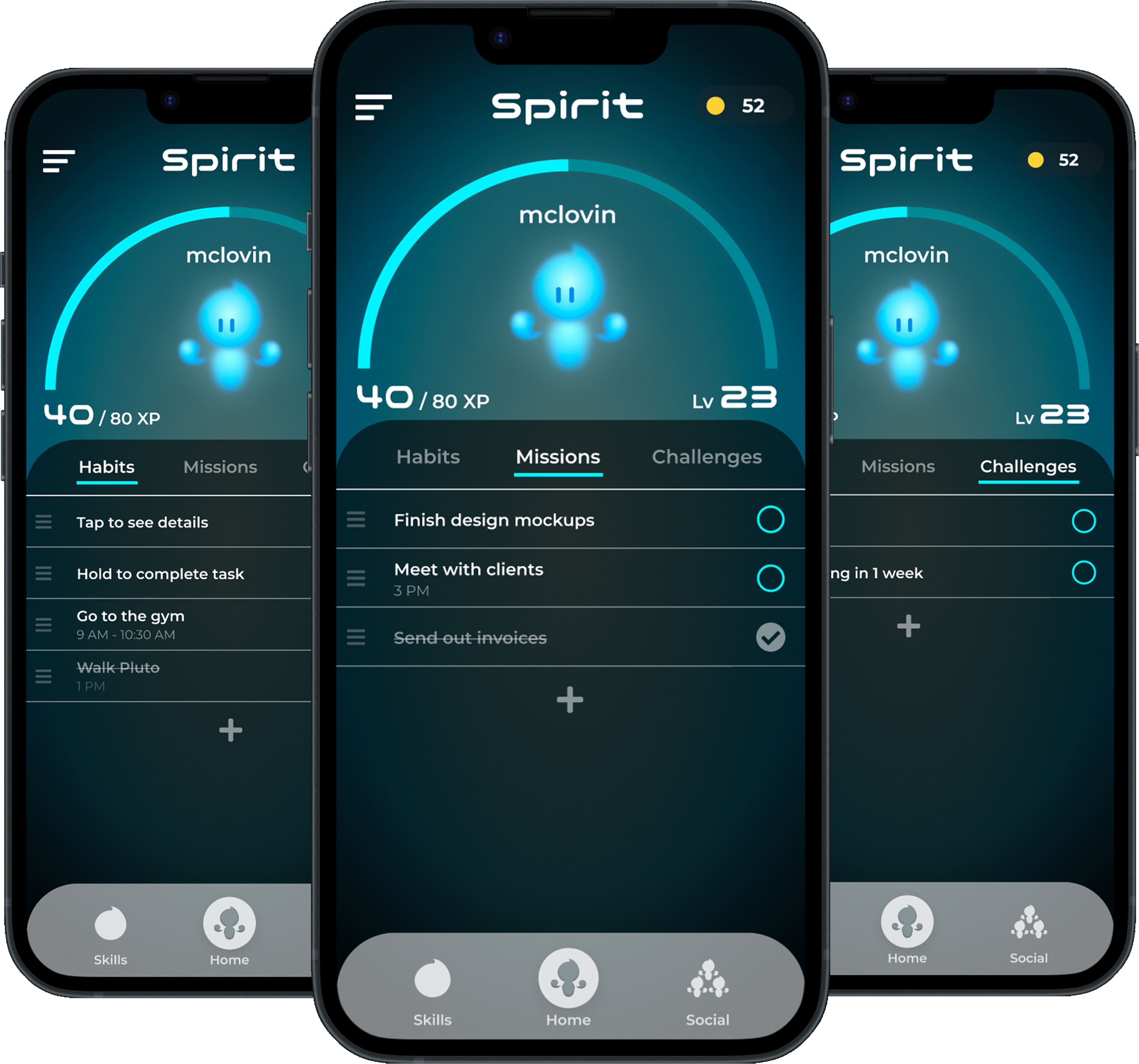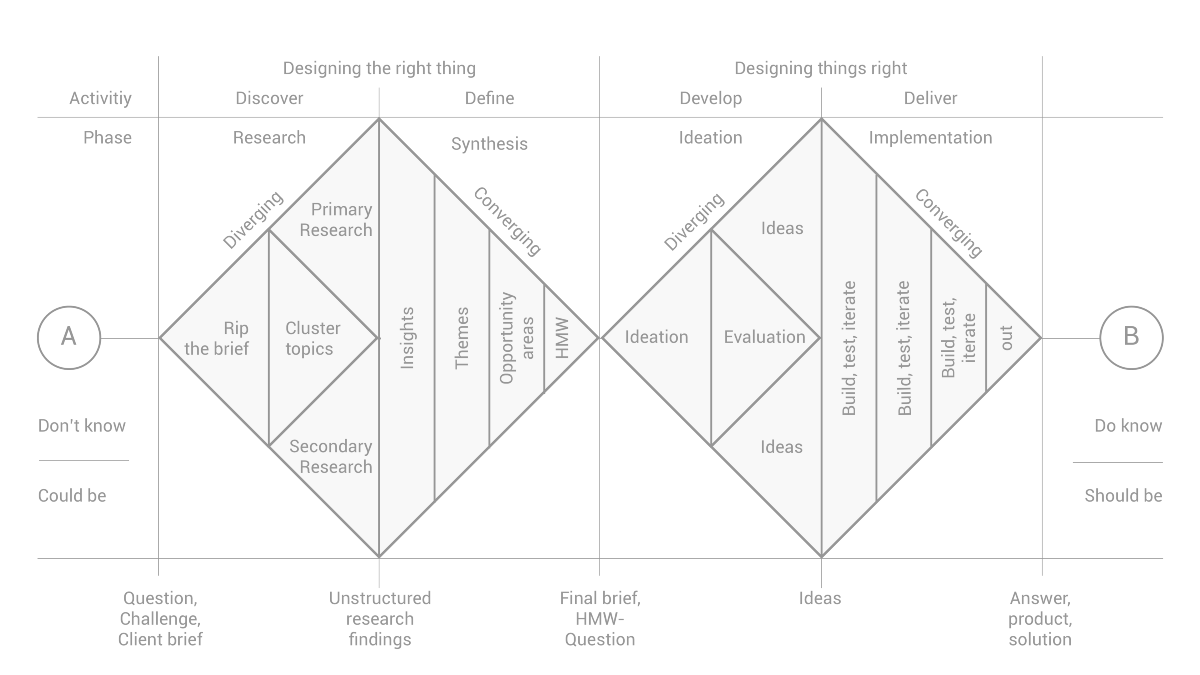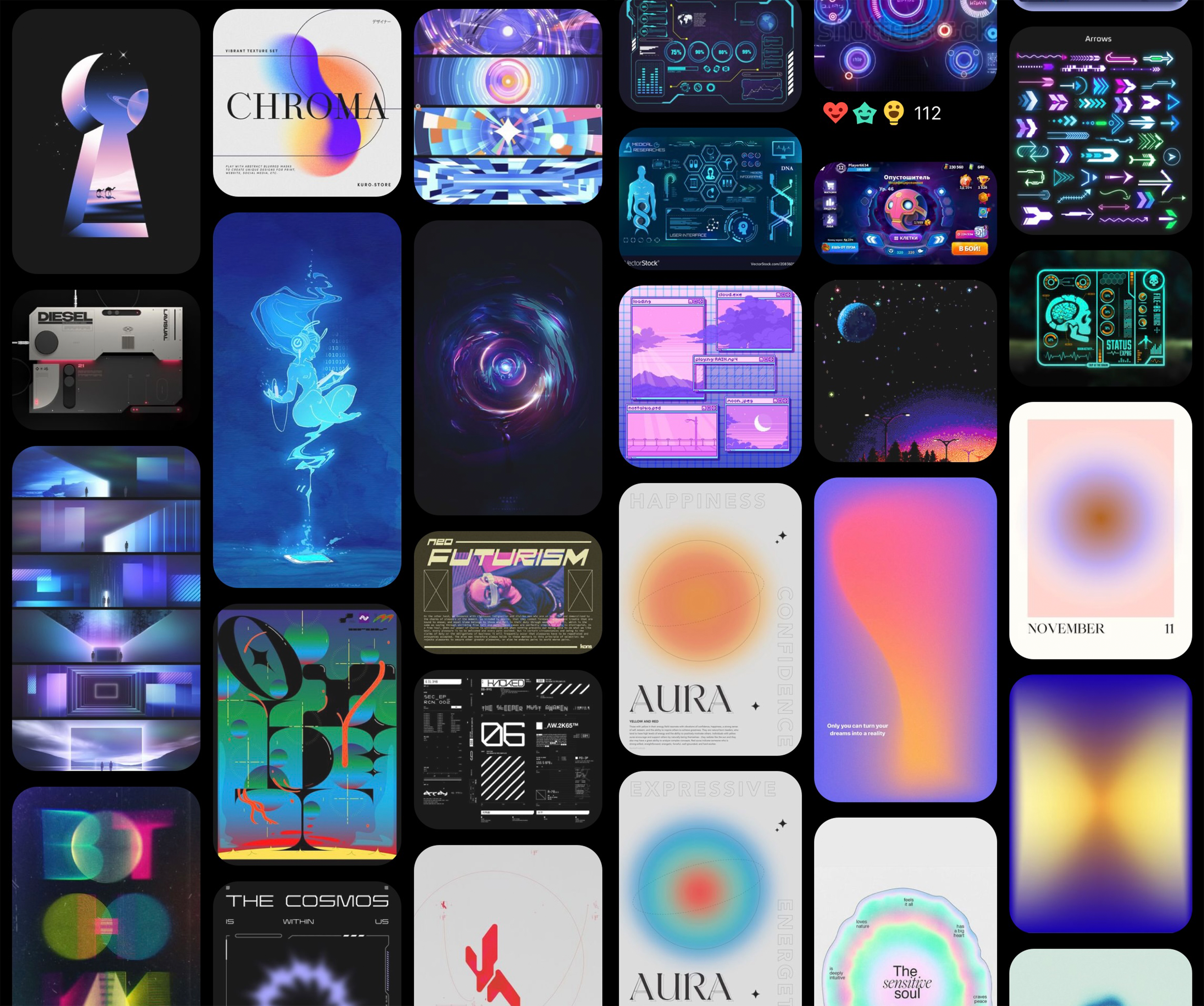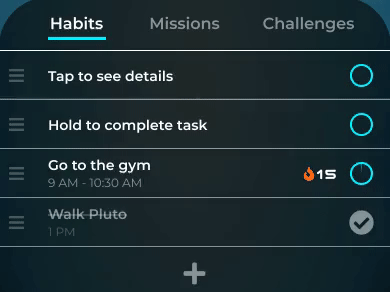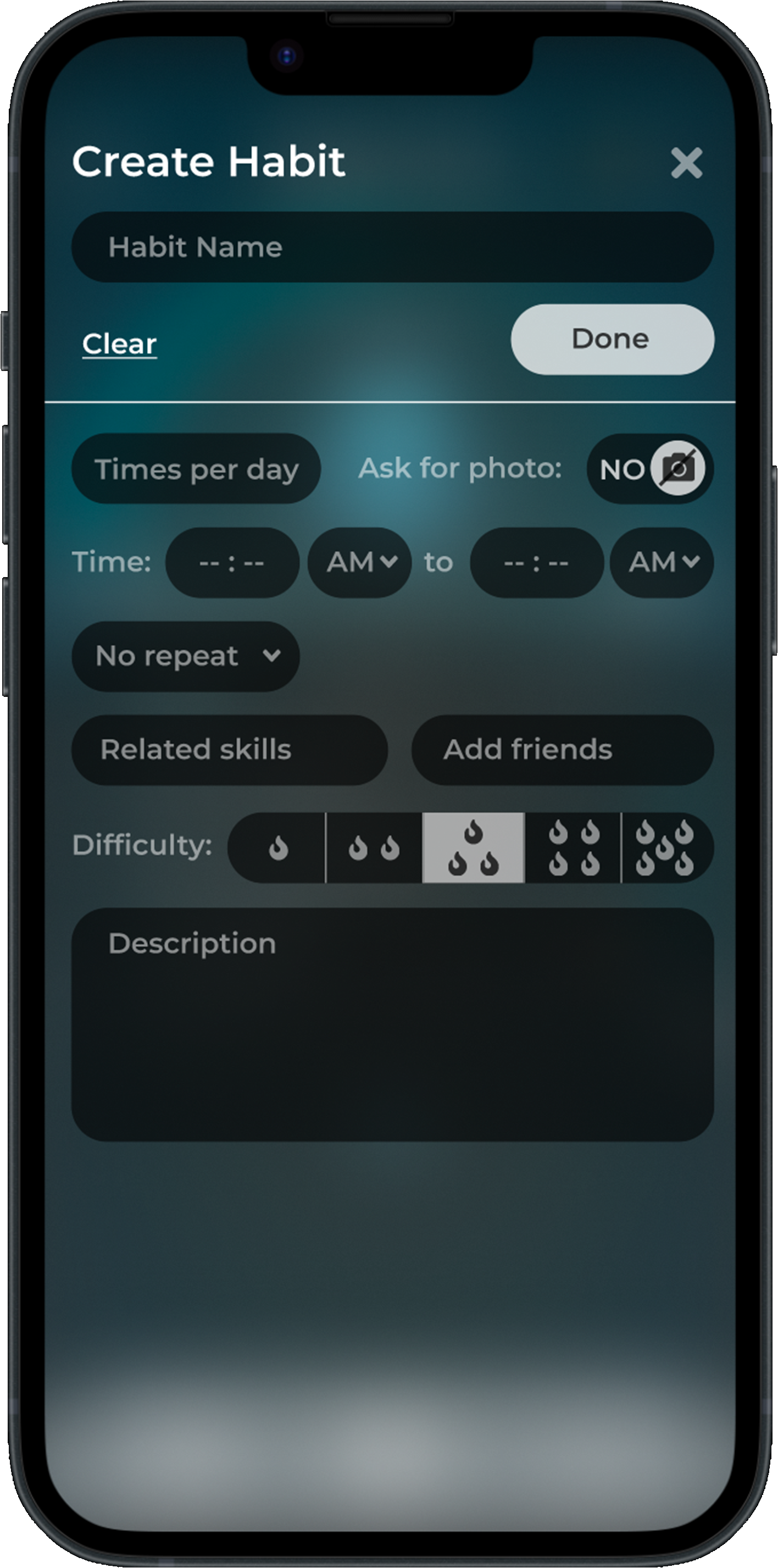Spirit
Spirit is a concept for a gamified habit and skill tracking app meant to encourage personal growth.
User Research
The first directive was defining the needs of my target users. In this case, my friends in the “accountability” group chat were who I was defining this for. Typical interactions in this group chat included setting monthly or yearly goals and sending updates in the form of pictures. Generalizing from this audience, anyone who is seeking to build new habits or skills should be welcomed by the app.
After conducting interviews and researching which factors led to the development of strong habits, I narrowed the responses to some key traits:
- Setting clear, manageable goals
- This is ultimately the responsibility of the user, but creating a space where they can write down their goals in terms of actionable tasks is the first step towards building habits.
- Promoting consistency
- Many sources report that doing some task everyday for 21 days makes that task a habit and doing it for 66-90 days makes it automatic or part of a lifestyle. Therefore, to encourage building habits or changing a lifestyle, the app must promote consistency
- Establishing rewards
- All habits are driven by some satisfying reward in response to fulfilling a craving. An unsatisfying response won’t motivate the building of a new habit and, over time, can also eliminate cravings for an existing habit.
- Staying accountable
- Having an accountability partner can help people stay motivated and committed to their goals. Fundamentally, this can be similar to a type of reward when a partner praises someone for sticking to their habits or motivation when they start to lose focus.
- Organizing multiple skills
- For people who are trying to develop multiple skills, organizing the activities and progress into different categories will be important.
Building the Solution
A necessary trait for building habits is consistency. To promote the repeated completion of habit tasks, I implemented a streak counter which scaled the rewards as the counter increased. This feature was designed to be positive reinforcement for the user, which would keep them excited for reaching new milestones in their consistency. In fact, the positive reinforcement is the fundamental difference between Spirit and other gamified habit building apps. These other applications use a health bar system that decreases in health if a task is not completed. This type of punishment subtly affects the user’s psychology making them feel little bits of shame or guilt which they would begin to associate with the use of the app. Ultimately, those feelings will reduce user retention so Spirit aims to kindle excitement towards the habit-building process.
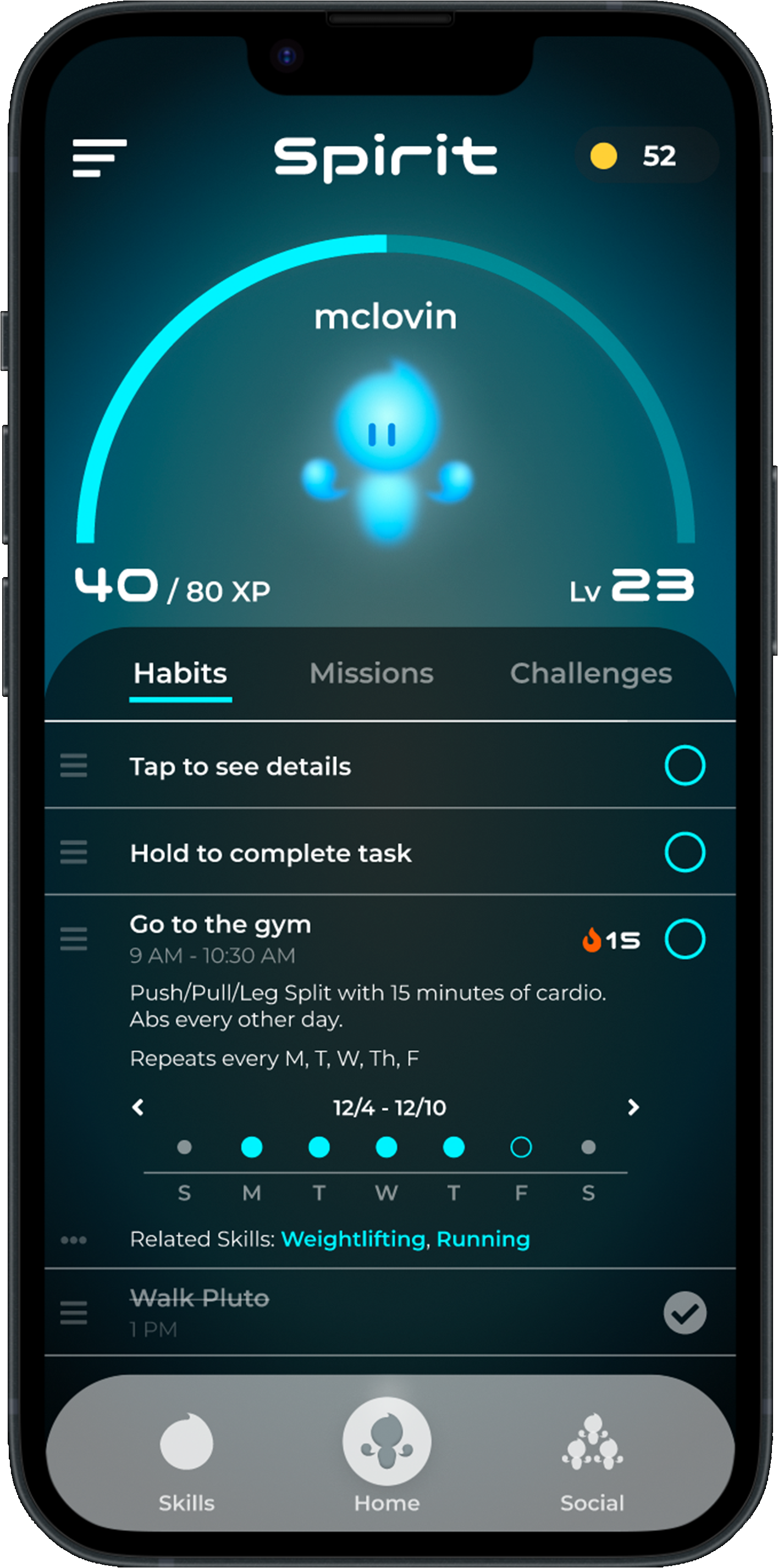
Finally, the social activity was designed with the intention of not being addicting. Posts that have already been seen will collapse so it is visually clear when to stop scrolling. The focus of the app is self-development and accountability over validation.
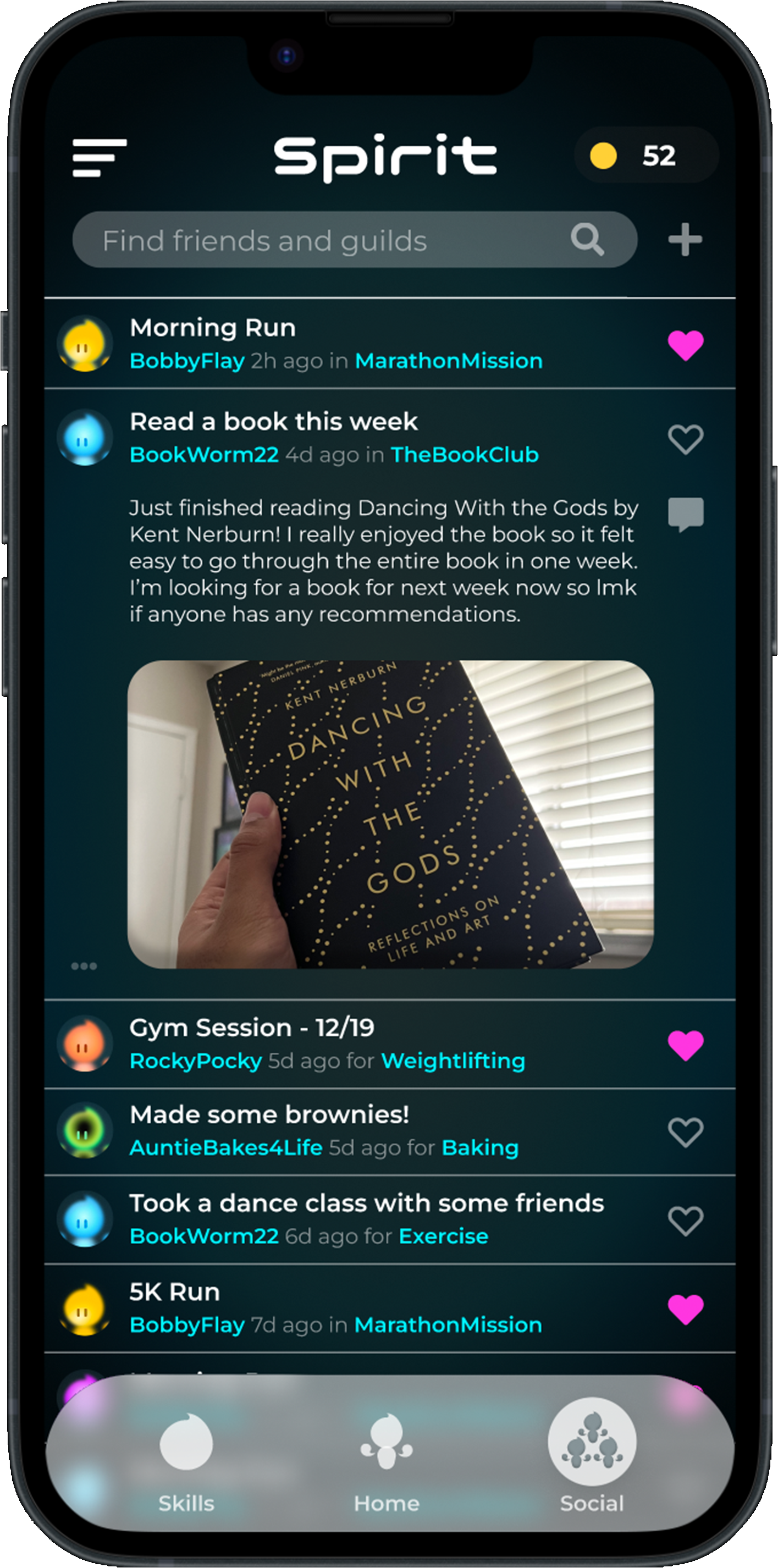
Results and Takeaways
After presenting a prototype to several people, I was glad to see that they were able to navigate between pages and successfully create and interact with the habit tasks. However, many people were confused about what to do with the skills page. It wasn’t clear to the users how their skills would connect to the other pages and what they could do while interacting with the individual skills. A common response was that there seemed to be too much information presented when viewing a skill and its activity.
For the next iteration of user testing, the simplified version of the skill activities was better received. The users were able to understand that they were viewing their recent activity related to each of their skills. It seemed that some of the confusion stemmed from the user immediately being presented with a page full of skills and completed activities, whereas a new user would start with a blank page and gain familiarity as they slowly create new skills and add activities.
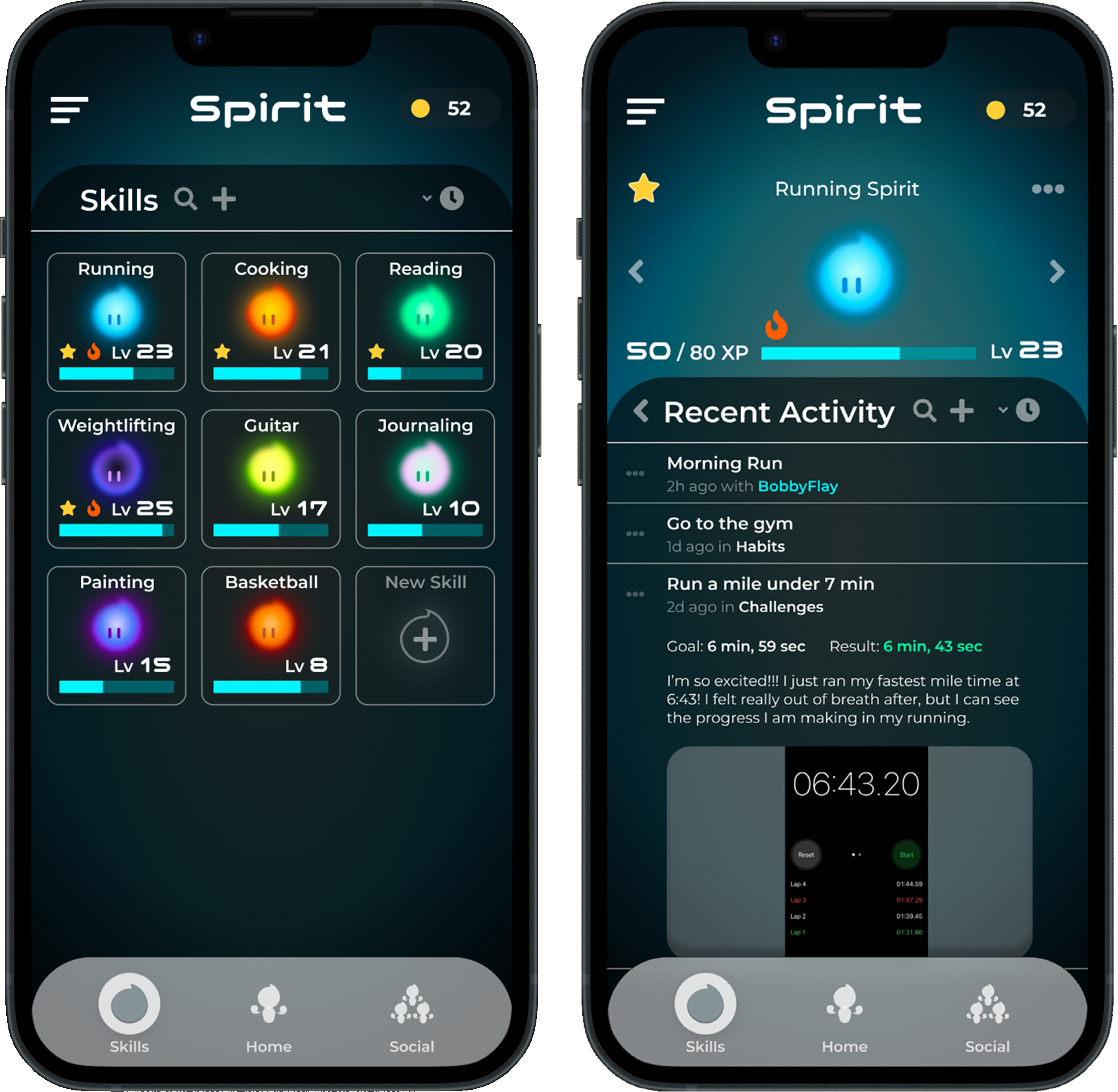
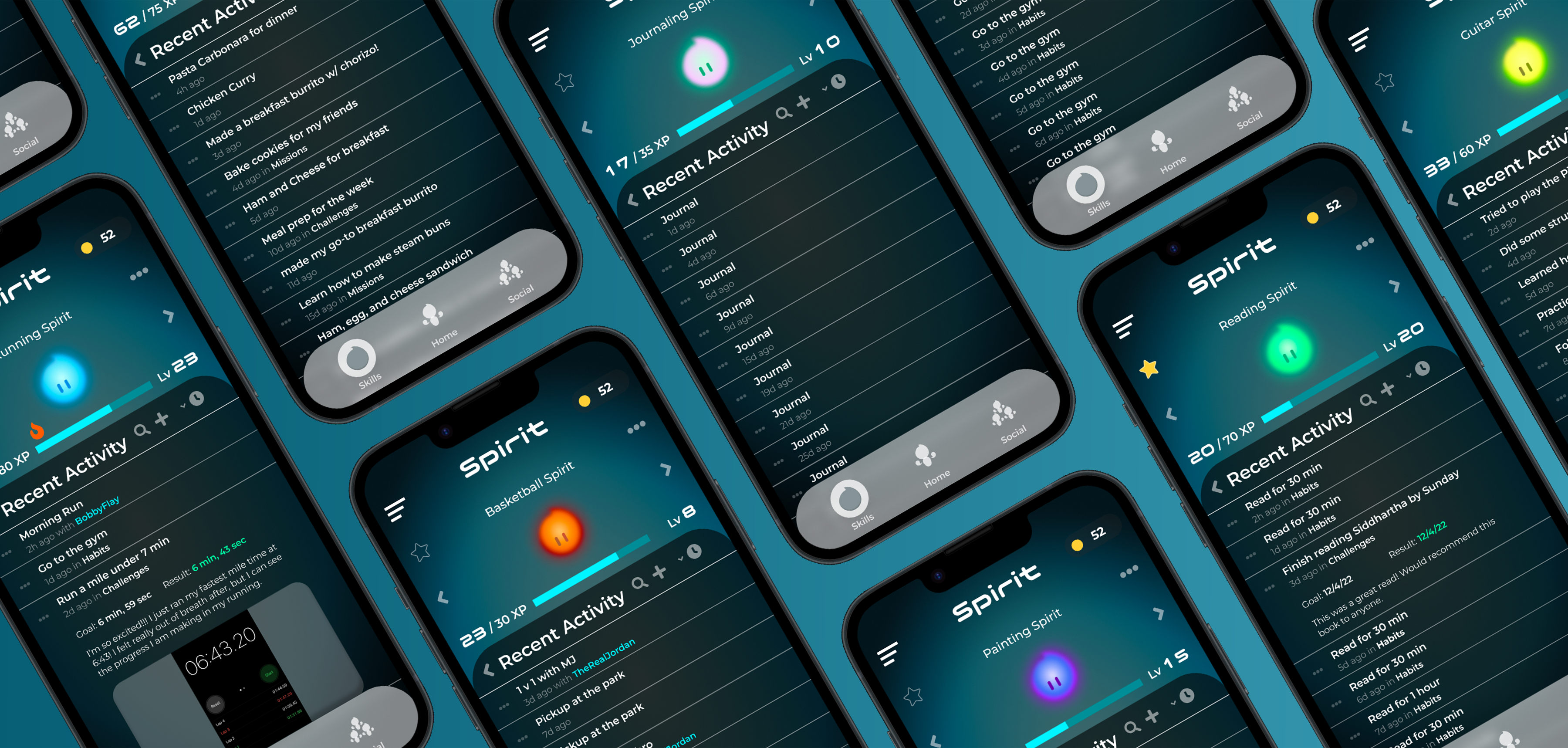
Conclusion
This entire process has been an exciting and incredible learning experience for me. I find a lot of enjoyment in creating experiences and actually building this project would directly impact the lives of the people in my community.
I think that there were several challenges that came with dealing with a problem that I was personally invested in, however. Primarily, I found myself assuming what I thought other users would want in the app prior to doing the actual research. This caused me to have to restart my design process to set the concerns of the intended users as the central voice instead of my own. I had to really question what I believed in to verify whether it was able to be supported by research or something I had assumed to know. For future projects, I want to do a better job of organizing this research and build better clarity prior to starting the design process.

